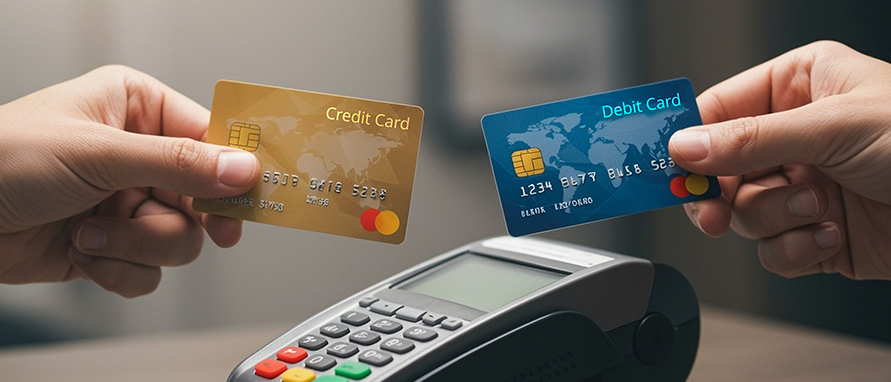There are many key differences between credit cards and debit cards. If you use a debit card to make a payment, the funds required are instantly debited from the savings bank account linked to the card. However if you use a credit card to make a purchase, the amount required is not debited right away. Instead, the cost of the purchase is charged to your credit card, and you will have to repay the liability later, within the due date. You can consider using debit cards for smaller everyday expenses, and rely on credit cards for major purchases instead.
Secondly, when comparing a debit card vs credit card, consider the purchasing power you enjoy. With a debit card, you only spend the amount you have in your bank account. However, with your credit card, you spend as per the credit card limit issued to you.
Apart from these key differences, debit and credit cards differ in terms of charges, billing, rewards, eligibility, safety and more. To make an informed choice when reflecting on the debit card vs credit card debate, it is crucial to know the differences between these two modes of payment.















